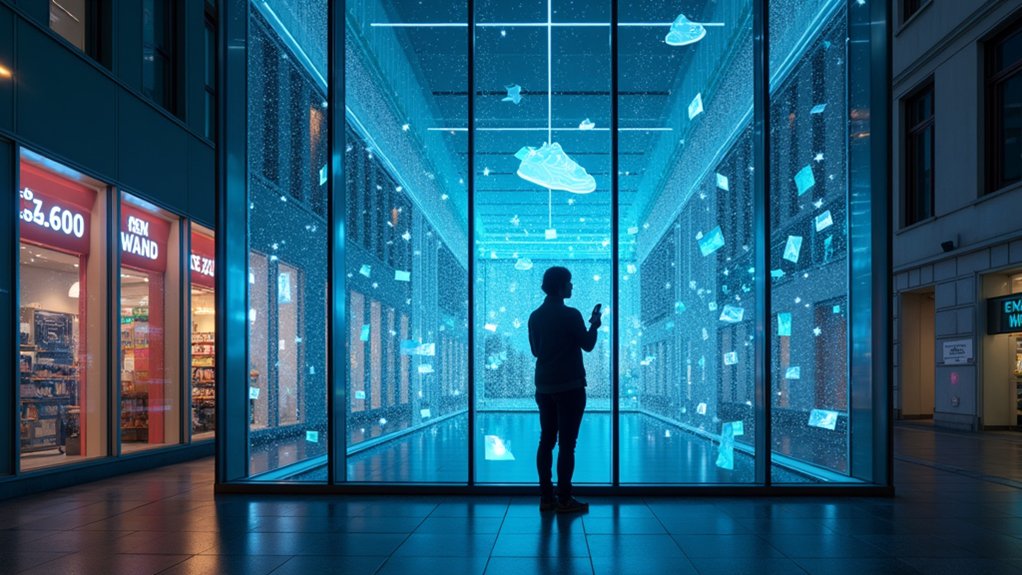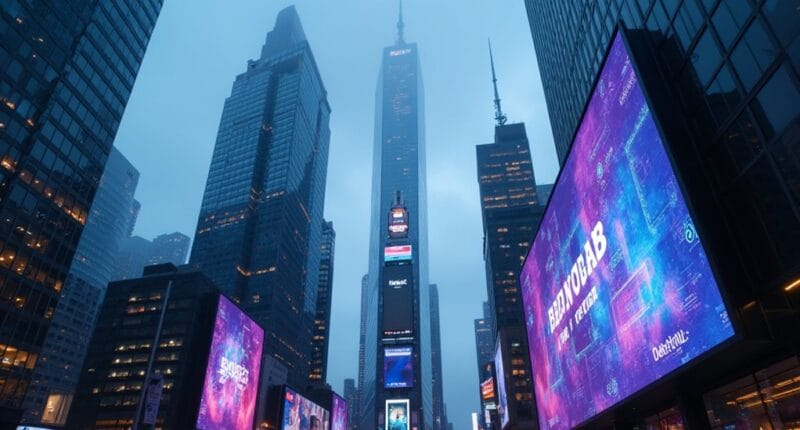Artificial intelligence is revolutionizing advertising by replacing gut instincts with cold, hard data. Traditional agencies are sweating as AI-powered campaigns deliver 25% higher ROI through precise targeting and real-time optimization. The old ways of demographic targeting? Dead. Weather patterns, purchase history, and countless other data points now determine when and where ads appear. Even McDonald’s has jumped on the AI bandwagon. The future of marketing belongs to the machines – and there’s plenty more disruption ahead.

While marketing professionals once relied primarily on human intuition and traditional demographics, artificial intelligence is rapidly transforming the advertising landscape into a data-driven powerhouse. The numbers don’t lie – AI in advertising is projected to surge beyond $100 billion by 2027, and it’s not just because machines are good at crunching numbers.
Gone are the days of throwing ads at the wall and hoping something sticks. AI analyzes everything – from purchase patterns to weather conditions – to determine the perfect moment to show an ad. And it works. AI-powered outdoor advertising has boosted ad recall by 40% and brand awareness by 28%. Not too shabby for a bunch of algorithms. The technology’s ability to enhance targeting has led to a 25% higher ROI for advertisers. Like smart investing, success in AI advertising requires thorough research and proven strategies rather than following trends.
AI doesn’t just guess – it knows exactly when, where, and how to target ads, delivering measurable results that traditional methods can’t touch.
The real magic happens in personalization. Those digital billboards that change based on who’s driving by? That’s AI working its magic. It’s like having a million tiny marketing gnomes working round the clock, except they’re actually effective. The technology tracks viewer metrics, optimizes campaigns in real-time, and predicts performance before a single dollar is spent. Companies like McDonald’s have partnered with IBM Watson to dramatically improve customer engagement and marketing efficiency.
Traditional advertising agencies are sweating bullets, and for good reason. Their precious hourly billing model is crumbling as AI automates the grunt work. Who needs to pay someone to analyze spreadsheets when a machine can do it in seconds? The industry is shifting toward value-based pricing, and the middlemen are getting nervous.
But it’s not all sunshine and algorithms. Regulators are starting to ask tough questions, especially about AI in political advertising. The FCC wants transparency about AI use, and ethical concerns are popping up faster than targeted ads on social media.
The future of advertising isn’t just changing – it’s being completely rewritten. AI is streamlining processes, eliminating inefficiencies, and making traditional marketing methods look like stone tablets and chisels. Smart companies are already adapting, while others are still trying to figure out why their billboard isn’t getting any likes.
Welcome to the future – hope you like data.




